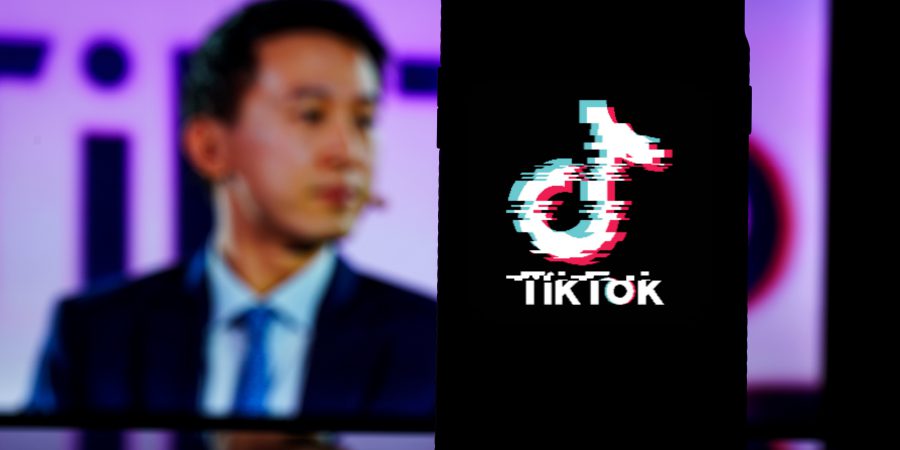In this article, we’ll delve into the shocking allegations made by a former ByteDance executive, Yintao Yu, who claims the popular app TikTok used bots and theft to gain artificial popularity. This could potentially complicate the platform’s ongoing battles in the United States.
Key Takeaways:
- Former ByteDance head of engineering, Yintao Yu, alleges TikTok used bots and stolen content to inflate its engagement.
- The lawsuit details ByteDance’s questionable practices, including the theft of content from other popular apps like Instagram and Snapchat.
- Yu accuses ByteDance of firing him wrongfully after he resisted these practices.
- The lawsuit also points to potential national security threats, claiming that ByteDance was a tool for the Chinese Communist Party and allowed China-based employees to access US users’ data.
- ByteDance denies these allegations, calling them baseless and promising to vigorously oppose them.
Allegations of TikTok’s Artificial Popularity
In a dramatic revelation that has left many in the tech industry shaken, Yintao Yu, a former executive at ByteDance, the parent company of TikTok, has come forward with some jaw-dropping allegations.
Yu, who once served as the Head of Engineering at ByteDance, is claiming that TikTok’s phenomenal rise to popularity may not be as organic as it appears.
According to Yu, the viral sensation TikTok had a little digital help to bolster its engagement metrics.
He maintains that the platform employed bots, a form of automated software, to mimic human behavior and inflate the numbers.
These bots, he claims, were instrumental in creating an artificial bubble of popularity around TikTok when it was struggling to establish a foothold in the United States.
The Accusation of Content Theft
But the allegations don’t stop at the usage of bots.
In a move that questions the ethical foundation of the tech giant, Yu also alleges that ByteDance resorted to outright theft to appeal to its user base.
His lawsuit contends that ByteDance engineers, in their bid to attract users, lifted popular content from rival platforms such as Instagram and Snapchat.
This stolen content was then repackaged and presented on TikTok, thereby hoodwinking users into believing it was original TikTok content.
Wrongful Termination Claim: Yu’s Stand against Unethical Practices
Yu’s firing from ByteDance, according to him, was a direct result of his resistance to these questionable practices.
He asserts that his employment was terminated wrongfully because he voiced concerns over the company’s ethics and stood against the theft of content from other apps.
His pushback against the company’s modus operandi, he claims, led to his ouster from ByteDance in July 2018.
ByteDance: A Supposed Tool for Chinese Communist Party?
Perhaps the most chilling part of Yu’s allegations is the claim regarding ByteDance’s alleged ties to the Chinese Communist Party.
Yu alleges that a “special unit of Chinese Communist Party members” was operating within ByteDance’s offices in Beijing, guiding the company’s advancement of core Communist values.
Moreover, Yu claims that these Party members influenced the content on Douyin, TikTok’s Chinese counterpart, to suppress content related to the Hong Kong protests and promote content expressing animosity towards Japan.
ByteDance’s Response to the Allegations
In response to the serious allegations leveled by Yu, ByteDance has come out swinging. The company has categorically denied the accusations and dismissed them as baseless.
ByteDance also underlined the brevity of Yu’s tenure at the company, emphasizing that he worked there for less than a year and his last engagement was with a now-defunct app called Flipagram.
The company has committed to strongly oppose these claims, further stating that they respect intellectual property rights and follow industry practices and global policy in acquiring data.
Potential Impact on TikTok’s Future in the United States
These claims, if substantiated, could prove a major setback for TikTok’s operations in the United States.
The platform is already grappling with the prospect of a nationwide ban, with lawmakers labeling it as a potential national security threat.
These new allegations could lend further credence to such claims and significantly intensify scrutiny around TikTok.
With Yu’s lawsuit laying bare the inner workings of ByteDance and TikTok, the platform’s future in the United States is hanging in the balance.
In a bid to counter these concerns, TikTok has made attempts to distance itself from ByteDance and China.
The company has committed more than a billion dollars to Project Texas, an initiative aimed at safeguarding U.S. user data from the global operations of ByteDance.
This effort hopes to address the concerns raised by U.S. regulators regarding potential data breaches and unauthorized access.
Shou Zi Chew, TikTok’s CEO, in his congressional testimony in March, downplayed the connections between TikTok and ByteDance, and furthermore, between the company and China.
Such efforts are part of a larger strategy to retain TikTok’s operational status in the United States, which is a significant market for the platform.
However, the severity of the accusations leveled by Yu and their potential implications could cause a significant shift in the narrative surrounding TikTok’s operations.
The alleged use of bots to boost engagement, the supposed theft of content, and the purported influence of the Chinese Communist Party on the platform’s content are all major concerns that could possibly influence the company’s future in the U.S.
Conclusion
These allegations present a significant challenge for TikTok, a platform already under scrutiny in the United States.
The coming weeks and months will likely see these issues being tackled head-on, both in the court of law and in the court of public opinion.
As the situation unfolds, it is clear that the stakes are high not just for TikTok and ByteDance, but for the global tech industry as a whole.
 Sections of this topic
Sections of this topic
















